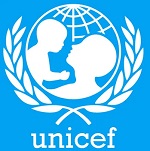Nigeria Needs 11 Million Toilets To Tackle Open Defecation
By Adebowale Bello. Freelance Health Writer.

Wednesday, September 11, 2024. With over 48 million Nigerians still engaging in open defecation, UNICEF has raised alarms, revealing that the nation faces a staggering annual economic loss of N2.4 trillion ($1.5 billion) due to related health issues and reduced productivity. To combat this, UNICEF estimates that Nigeria urgently needs 11 million new toilets.
In addition, UNICEF is also advocating for increased private sector participation to help resolve Nigeria’s worsening sanitation crisis. At a meeting in Lagos, government officials, private sector leaders and international organizations convened to discuss the detrimental effects of open defecation on health, the economy and society at large, while outlining strategies for urgent action.
Dr. Jane Bevan, UNICEF’s Chief of Water, Sanitation, and Hygiene (WASH) in Nigeria, noted that while the government has made strides in reducing open defecation, progress remains limited. "With 48 million Nigerians lacking access to basic sanitation, we remain one of the countries with the highest rates of open defecation," Bevan stated. She emphasized that solving this crisis requires a joint effort, particularly from the private sector.
Bevan pointed to the success of UNICEF’s collaboration with Bauchi State, where the provision of revolving loans for sanitation businesses has shown promising results. She urged private businesses to invest in the construction of public toilets, especially in urban centers like Lagos and to support sanitation service providers.
Celine Lafoucriere, Chief of UNICEF's Lagos Field Office, reinforced the need for private sector engagement to bridge the gaps in Nigeria’s sanitation infrastructure. "The task ahead is enormous—Nigeria urgently needs 11 million toilets and this presents an economic opportunity for businesses, the population, and the government alike," Lafoucriere stated. She underscored the potential for job creation and youth empowerment through investment in the sanitation sector.
Similarly, Olusola Obadimu, Director General of the Nigerian Association of Chambers of Commerce, Industry, Mines and Agriculture (NACCIMA), highlighted how poor sanitation standards damage Nigeria’s international image and deter potential investors. He called for concerted efforts from the private sector to eliminate open defecation and boost the country’s business environment. "We must clean up our public spaces if we hope to attract meaningful investments," Obadimu urged.
At the meeting, representatives from the National Economic Summit Group (NESG) identified key areas for investment, including building toilets in public spaces, schools and communities, improving wastewater management and ensuring access to clean drinking water. NESG emphasized that private sector partnerships are vital for making these initiatives successful.
Dr. Chinyere Alumona, Director General of the US Chamber of Commerce, echoed these sentiments, stressing the significant health, economic and social impacts of open defecation. She highlighted studies demonstrating the economic benefits of investing in sanitation, with potential returns of up to $5.50 for every dollar spent. Alumona urged businesses to recognize the dual benefits of addressing sanitation issues—improved public health and substantial economic gains.
Mrs. Elizabeth Ugoh, Director of Water Quality, Sanitation and Hygiene at Nigeria’s Federal Ministry of Water Resources and Sanitation (FMWRS), provided an overview of the country’s sanitation progress. She noted that while efforts to achieve Open Defecation Free (ODF) status have yielded some results, only 126 out of 774 local governments have achieved this goal. Ugoh stressed the need for further investment, improved infrastructure and stronger collaborations to reach universal sanitation access.
As Nigeria grapples with its sanitation crisis, it is clear that a comprehensive approach involving government, private sector and international organizations is required to meet the urgent need for sanitation facilities and reduce the country’s economic losses.
Source: Independent Newspaper Nigeria
Published: September 11, 2024
© 2024. Datelinehealth Africa Inc. All rights reserved.
Permission is given to copy, use and share content for non-commercial purposes without alteration or modification and subject to source attribution.
DATELINEHEALTH AFRICA INC., is a digital publisher for informational and educational purposes and does not offer personal medical care and advice. If you have a medical problem needing routine or emergency attention, call your doctor or local emergency services immediately, or visit the nearest emergency room or the nearest hospital. You should consult your professional healthcare provider before starting any nutrition, diet, exercise, fitness, medical or wellness program mentioned or referenced in the DatelinehealthAfrica website. Click here for more disclaimer notice.